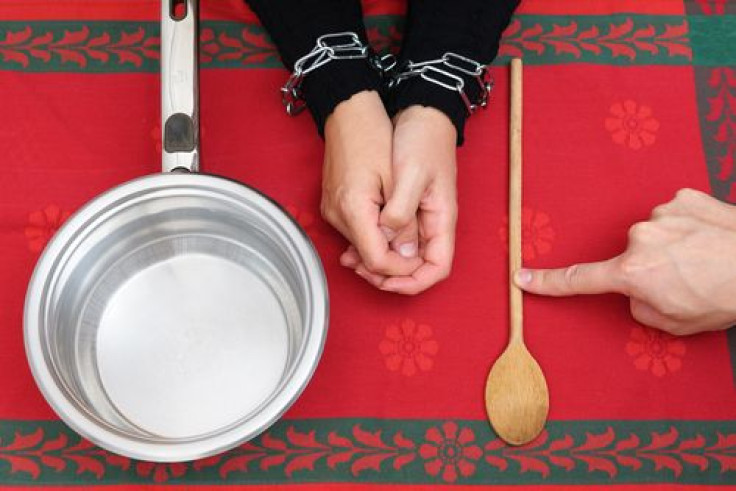Family Meals Put Too Much Pressure On Mothers, Causing More Harm Than Good

Trying to be the cookie cutter family requires a lot of work and is in all reality impossible, but that doesn’t stop the pressure to attain perfection. A new study from North Carolina State University has proven that the pressures of saving money, burden of pleasing one another, and organizing a coordinating schedule cause more harm than good. The results were published in the journal Context.
"We wanted to understand the relationship between this ideal that is presented in popular culture and the realities that people live with when it comes to feeding their children," said the study’s co-author Dr. Sarah Bowen, an associate professor of sociology at NC State, in a press release. "Poor mothers also skipped meals and stood in long lines at non-profit food pantries to provide food for their children. This idea of a home-cooked meal is appealing, but it's unrealistic for a lot of families. We as a society need to develop creative solutions to support families and help share the work of providing kids with healthy meals."
The home-cooked family meal is the white picket fence picture of a perfect family, but the stress it causes families is causing more harm. Researchers interviewed 150 women who have families with children between the ages of 2 and 8, and then spent 250 hours analyzing 12 of the families in-depth. The financial planning and meal planning that was involved stressed mothers out, and poorer families faced even more tiresome and frustrating restrictions.
"We found that middle-class, working-class, and poor families faced some similar challenges," said the study’s co-author Dr. Sinikka Elliott, an associate professor of sociology at NC State, in a press release. "For example, mothers from all backgrounds reported difficulty in finding time to prepare meals that everyone in the family would be willing to eat."
Many middle-class mothers were stressed they weren’t able to provide organic foods for their children because they couldn’t afford the ideal home-cooked meal. Having the proper tools, transportation to grocery stores, and access to proper kitchen equipment put pressure on poorer women as well. Over the past 15 years, research has proven sharing family meals benefits members emotionally and physically, and helps bolster vocabulary and overall performance in the classroom for children, according to The Family Dinner Project. However, not every family can pull it off and the pressure from media and research can worsen a caregiver’s self esteem and pride for providing for his or her family.
"There are a lot of ways we could do this, from community kitchens where families work together to arranging to-go meals from schools," Elliott said. "There is no one answer. But we hope this work inspires people to start thinking outside the family kitchen about broader things we as a society can do when it comes to food and health."
Source: Brenton J, Elliot S, and Bowen S. The Joy of Cooking. Contexts. 2014.



























